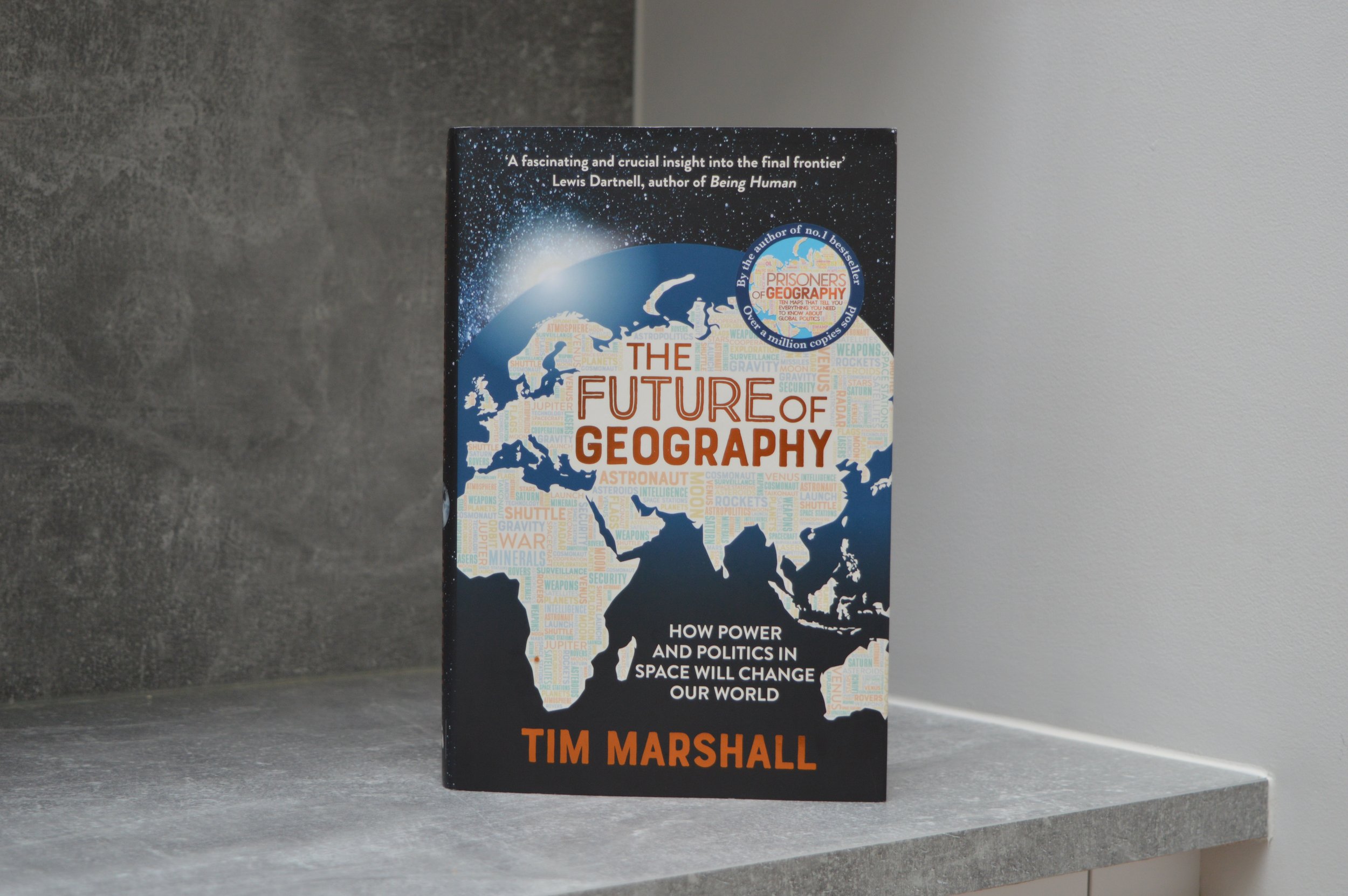The Future of Geography
“… our view of space is changing. It is now, more than ever, becoming an extension of the geography of Earth: humans are taking our nation states, our corporations, our history, politics and conflicts way up above us. And that could revolutionise life down on Earth’s surface.” (p.xii)
November 2023
Overall Verdict: ★ ★ ★
To buy this book, click here.
Why this book?
It was hard to decide whether or not to blog about this book. Sadly, it simply doesn’t compare to the incredible debut of ‘Prisoners of Geographer’ that Tim Marshall is so well known for but nonetheless it does certain some useful nuggets for both geography teachers and students alike. The title is perhaps a little misleading; so much of the book is about the history of space exploration and the ‘logistics’ of current space programmes that it feels a little bit of a push to claim it as a discussion of the future of geography. However, as I read, I found myself creating a summary sheet on the topic of superpowers and space and thus ultimately decided to share some key take-aways.
For students:
Space sneaks into the Superpowers topic right at the end with an explicit reference to how the economic costs of space exploration are being questioned in some existing superpowers (7.9c). However, this book’s discussion of how power and politics in space will change our world means that it serves as an extension of, and a way of going beyond, the spec.
An A4 summary of the key points regarding space and superpower status can be downloaded here. You’ll notice the keyword box on this sheet which signposts some of the synoptic links that thinking about space allows you to draw. Some questions that you might consider whilst reading this book are:
How might superpowers be using space exploration to increase their spheres of influence?
In which ways is space power both hard and soft power and what it the significance of having power in space?
How does space exploration link to the geographical concept of interdependence?
What are the current geopolitics of space in 2023 and how is this an extension of the geopolitics on earth?
For teachers:
As above, I would be signposting this book and the summary sheet shared here as a way of going beyond the specification when discussing space in the superpowers topic of A-Level geography. If time in the curriculum allows however, there are plenty of key ideas worthy of discussion and exploration with A-Level students:
Tim Marshall explains that it was conflict (the arms race of the Cold War) that progressed our technology enough to enable the initial space exploration. Why is this significant when thinking about superpowers and their influence in space today?
Based on information given in the book it is possible to construct a simple table of ‘China Vs America’ in terms of space power. To what extent is China rivalling America in terms of space power as the 21stcentury progresses?
Is Russia and China were the first to place a man on Mars, what would this mean for American’s superpower status?
To buy this book, click here.
